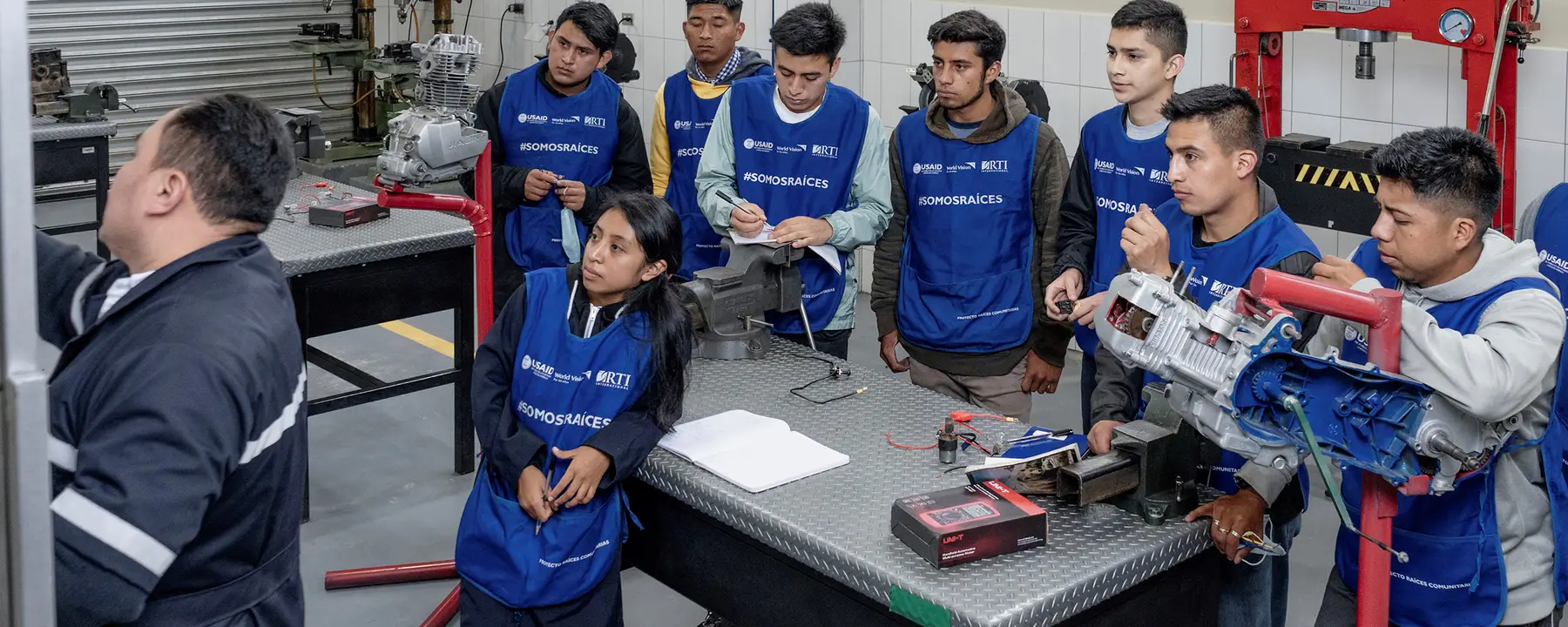The USAID Community Roots project brought partners together to provide at-risk children, youth, and women with economic and educational opportunities and support services.
Objective
To reduce violence and irregular migration in disadvantaged communities in Guatemala.
Approach
Boost economic opportunity through education and entrepreneurship, promote the holistic development of children and youth, and support municipalities and communities in designing and implementing prevention strategies.
Impact
Community Roots extended services to over 405,000 vulnerable people, helped over 1,600 youth complete high school equivalency, helped 92 communities develop and implement their own violence prevention plans, and leveraged more than $10 million from the private and public sectors.
Impact of the Community Roots Project in Guatemala
Guatemala faces serious challenges with security. Violence and crime, combined with lack of economic opportunities have become drivers of irregular migration, especially for youth.
The USAID Community Roots project (2016–2022), led by World Vision and supported by RTI, helped Guatemalan local governments, municipalities, civil society and private sector organizations, and communities address the root causes of these issues in disadvantaged areas with a focus on at-risk children, youth, and women.
Community Roots was active in 23 municipalities and 92 communities within Chiquimula, Quetzaltenango, San Marcos, Totonicapán, Sololá, and Huehuetenango.
Activities included:
- Supporting community violence prevention by promoting holistic approaches to these issues.
- Strengthening and mobilizing municipal and local leaders and resources.
- Fostering private sector involvement to boost sustainability.
- Supporting secondary violence prevention projects, such as job training and entrepreneurship.
Advancing a community-led, participatory approach
Community Roots’ approach was characterized by local participation and solutions as it worked closely with community members and leaders to develop plans for preventing violence and irregular migration that leveraged communications strategies for changing behavior.
Collaboration with Guatemala’s National Civil Police helped reduce violence in schools and improve community policing. Engagement with local businesses increased training, job, internship, and educational opportunities for youth.
Community Roots also piloted a community-based referral system where organizations refer high-risk children and youth to activities that support their holistic development, such as alternative education opportunities and professional psychological care services. The project built the capacity of these referral networks and related municipal institutions so they could continue to refer young people, provide scholarships, and offer programs and services over the long-term.
Learn more about our work in Guatemala.
- World Vision Guatemala

